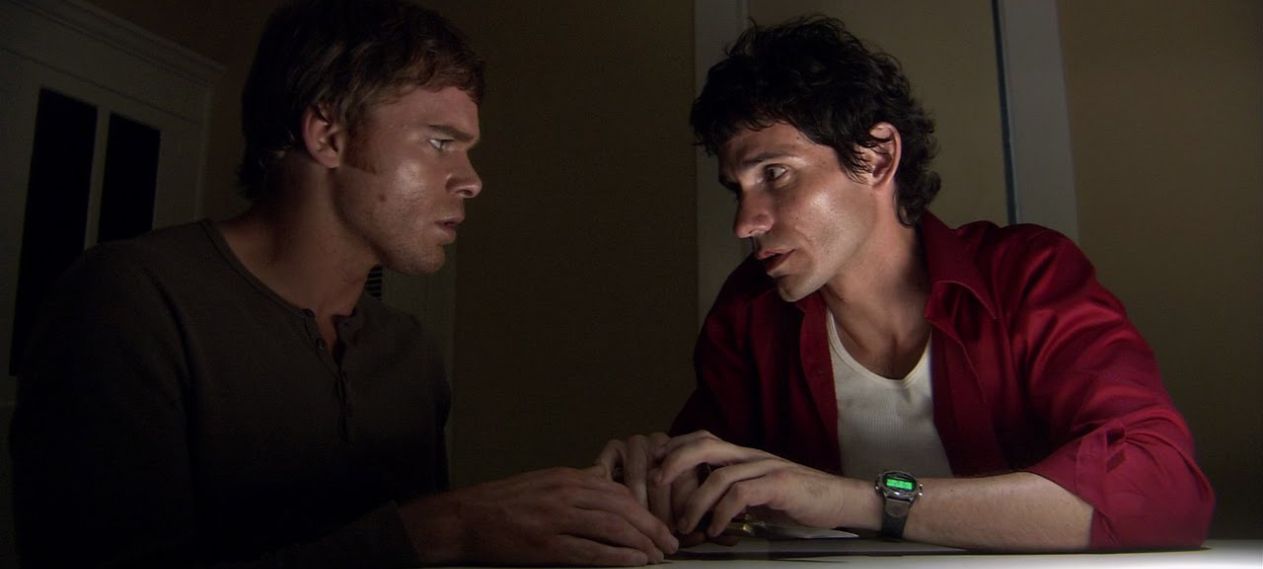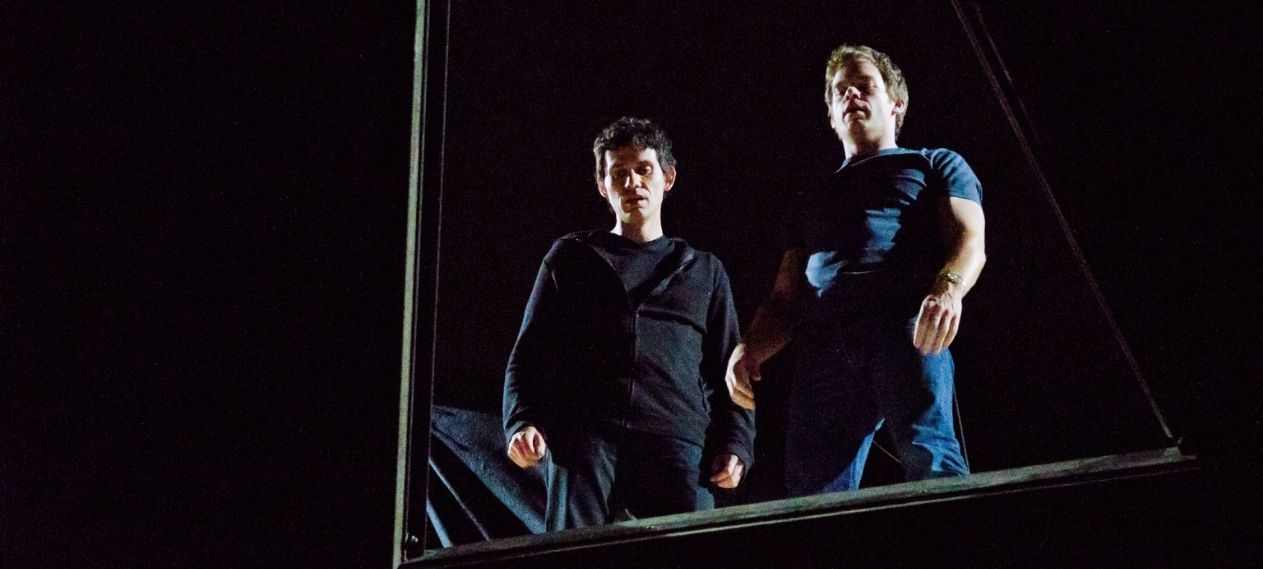Dexter: Resurrection, There are some stories that just don’t end, not because the creators keep dragging them on, but because we as viewers can’t let go. Dexter is one of those. The show came out swinging with a code, a dark passenger, and a lead character unlike anything we’d seen before. And no matter how people felt about the way the original series ended, Dexter still had something that made it stick: the voice inside his head.
Back from the Dead? Or Lost in His Own Mind?
When Dexter: New Blood came out, I didn’t expect to love it. I just wanted it to clean up the mess the finale left behind. And it kind of did. Dexter dies. Harrison pulls the trigger. It felt like closure. Brutal, but earned. The end. Except, apparently, it wasn’t.
Now we’ve got Dexter: Resurrection, and it’s not just about bringing the character back. It’s about digging into the real core of who Dexter is—or maybe was. This new chapter feels less like a sequel and more like a character study. It’s not Dexter running around killing again. It’s what’s left behind after everything else is stripped away. It’s internal. Psychological. Almost existential.
Dexter: Resurrection doesn’t make it clear where exactly we are. Maybe it’s Harrison remembering him. Maybe it’s Dexter’s mind still floating in some limbo. Maybe it’s just symbolic. But whatever it is, Dexter is still thinking, still talking to himself—or so it seems. At first, it feels familiar. The usual inner monologue.
He analyses, reflects, tries to make sense of things. But after a while, something shifts. The voice in his head becomes different. Sharper. More critical. Like it’s not just Dexter talking to himself anymore—he’s in an argument.
A Voice in the Dark—But Not His Own

And then you realize: he’s not alone. In episode 7, it becomes obvious. There’s another voice. One that’s not his. Calm. Confident. Almost amused. It’s subtle at first, but then it hits. Brian Moser.
The Ice Truck Killer. Dexter’s biological brother. The one person who saw Dexter for what he was—and accepted it. Encouraged it. In the original series, Dexter killed Brian to protect the code. He chose control over chaos. But Brian was the first person who made Dexter feel understood without judgment. And that bond, as twisted as it was, never really went away.
So now, in Dexter: Resurrection, Brian’s voice comes back. Not physically, at least not yet. But in Dexter’s mind, Brian is alive. Fully present. Not a memory or a flashback, but something deeper. A part of Dexter that was never buried. What’s interesting is how the show handles it.
They don’t over-explain. Is Brian a hallucination? A mental projection? A symbol? They don’t say. He’s just there. And that’s what makes it effective. Because in a way, Brian always represented the part of Dexter that wasn’t trying to follow a code.
He was pure instinct. And now that Harry’s voice is gone, there’s a vacuum. Brian fills it. But he’s not exactly the same as he was back then. This version of Brian is calmer. Smarter. He doesn’t try to push Dexter into killing. He just calls out the lies. The rationalizations. He pokes holes in the story Dexter’s been telling himself for years.
That’s where this show gets really interesting. Dexter: Resurrection isn’t about Dexter killing again—it’s about him facing himself. His real self. And Brian is the mirror.
The part of Dexter that never bought into Harry’s system. The part that thought the code was just a way to dress up what he already wanted to do. There’s a scene that really stuck with me. Dexter is standing in a dark, dream-like version of his old apartment in Miami. It’s quiet. Empty.
He looks around like he knows something’s missing. Then Brian walks in—not with dramatic music or a big jump scare. He’s just there. Like he’s always been.
“You thought you could end the story,” Brian says. “But I’m the part that never dies.”
That line hit hard. Because that’s exactly what this whole season seems to be building toward. Brian isn’t back for revenge. He’s not here to convince Dexter to start killing again. He’s just there to remind him—and us—that the darkness doesn’t go away just because the body does.
So here’s my theory: Brian isn’t literally back from the dead. But he’s very much alive in Dexter’s mind. He’s what’s left when everything else is gone. The part of Dexter that never changed. Never evolved. The part he thought he buried, but actually just hid behind rules.

If Dexter: Resurrection keeps going in this direction, we’re not watching a thriller anymore. We’re watching Dexter unravel. Not in the physical world, but inside himself. A psychological battleground where Harry is gone and Brian is now the loudest voice in the room. And maybe that’s the point. Maybe the real end to Dexter’s story isn’t about dying or getting caught. Maybe it’s about finally admitting who he really was all along.
Brian represents the version of Dexter that didn’t need a code to function. The version that didn’t feel guilty. And now, with nothing left—no father, no son, no life—Dexter is face-to-face with that version again. Whether that’s symbolic, psychological, or something more supernatural doesn’t really matter. What matters is that Dexter’s greatest struggle was never against other killers. It was always against himself, And now, he’s losing.
Dexter: Resurrection isn’t just a continuation of a cult-favorite series. It’s a meditation on identity, guilt, and the layers we hide behind to survive ourselves. The brilliance of this imagined chapter isn’t in bringing Dexter Morgan back to life, but in confronting what’s always lived inside him—undiluted, unfiltered, and finally unmasked.
Brian Moser’s return isn’t about shock value or fan service. It’s symbolic. Dexter: Resurrection uses him as a device to peel back everything Dexter once used to justify his existence: the code, Harry’s voice, his need for control. With all that gone, what’s left is the part of Dexter that never died—the instinct, the impulse, the shadow. And Brian? He is that shadow. Calm. Calculated. Honest in a way Dexter never allowed himself to be.
We’re not watching Dexter kill or escape or cover his tracks. We’re watching him unravel from the inside out. Dexter: Resurrection becomes less about suspense and more about reckoning. What happens when a man who’s spent his entire life trying to manage his darkness is finally forced to sit with it—no rules, no excuses, no father figure to clean up after him?
That’s the haunting beauty of this version. It’s not concerned with redemption or revenge. It’s about recognition. Brian doesn’t return to corrupt Dexter—he returns to reveal him. Every internal conversation, every shared scene in Dexter’s mind is a reminder that the darkness he thought he buried is, in fact, the truest part of him.
So if this is the real end, it’s not a bloody finale or a quiet exile. It’s a confrontation. A surrender. Dexter: Resurrection doesn’t ask whether Dexter can be saved. It asks whether he ever really wanted to be.
And maybe that’s the most honest ending of all.









